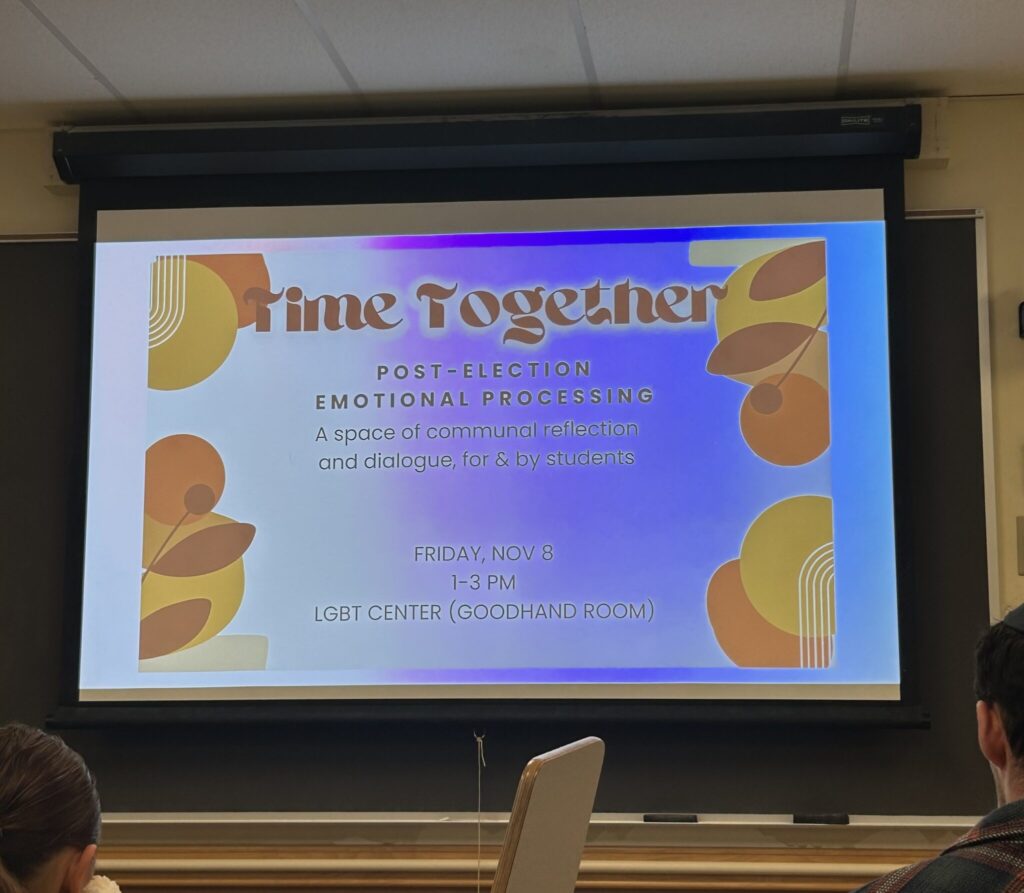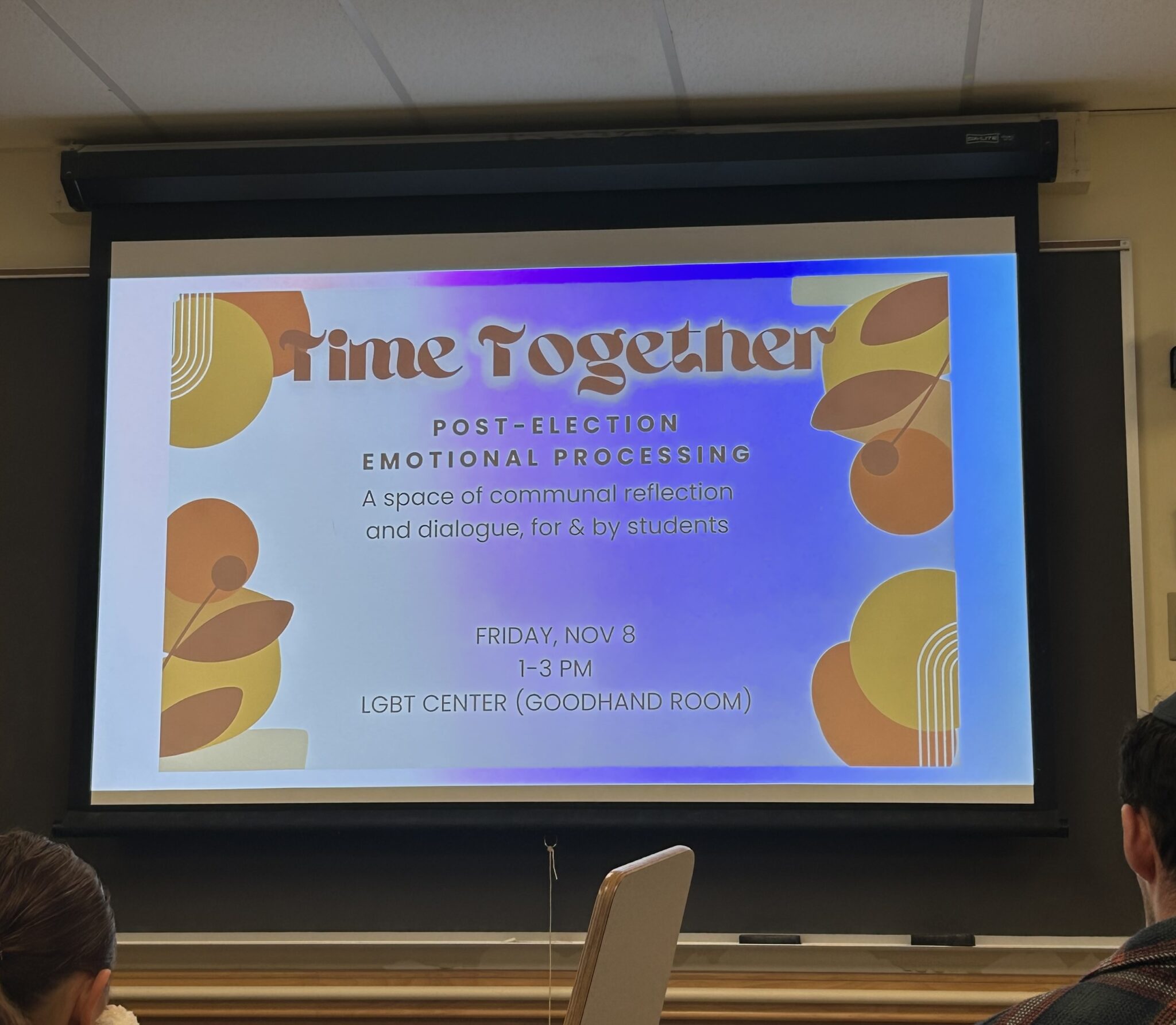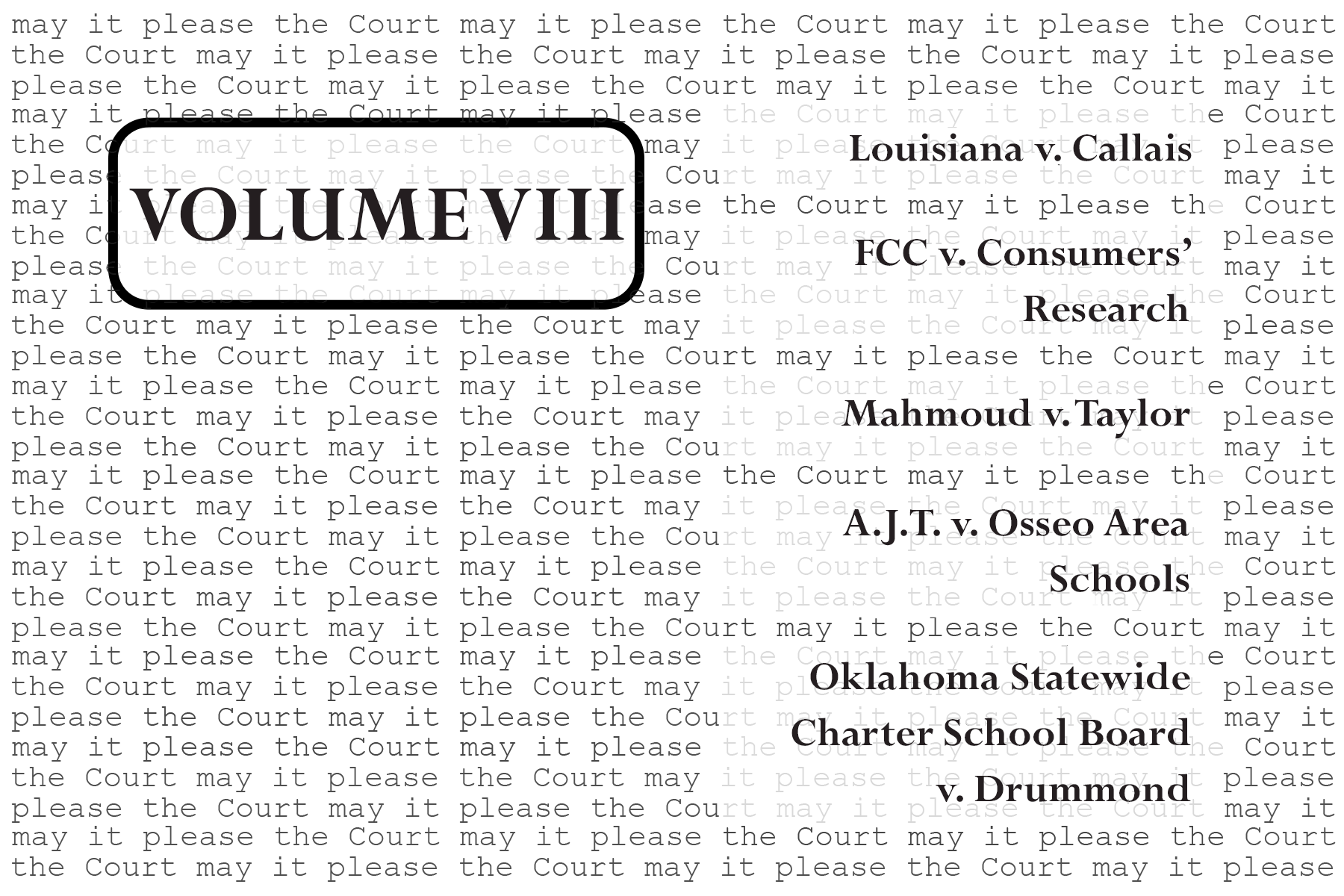With emotions running high, students and professors navigate the divide over classroom discussions, academic adjustments, and post-election support spaces.

Photo Credit: Reagan Reese
By Jennifer Mesa and Reagan Reese
As the 2024 elections come to a close, emotions across the country continue to run high. While one half of the nation celebrates a sweeping victory, the other grapples with a major defeat. This political division is apparent at Penn, where students are overwhelmingly expressing disappointment with the outcome. Estimates suggest that about 81.6% of Penn students who voted cast their ballots for Kamala Harris.
Many professors have also vocalized dissatisfaction with the results, with some adjusting their course plans by dedicating class time to discussions, postponing exams, or even canceling class altogether.
We interviewed several students who, on condition of anonymity, shared their experiences and reflections of how professors responded in the classroom.
One student shared that in their history class, which focuses on American politics, the professor gave students the option to choose to take a quiz on its assigned day, November 6th, or to postpone it to November 11th. For the remainder of class, this professor directed students through a breathing exercise, journaling session, and an open discussion.
“It seemed very strange and mournful…,” the student said. “While I understand that many people have strong feelings about the results, throughout the open discussion, students were very angry and hostile towards people who voted for Trump.”
The student continued to express that they did not think some of the rhetoric was appropriate. “If there was a Trump supporter in the class, I can’t imagine how alienated and villainized they must have felt. This rhetoric towards conservative ideology is really hostile and largely incorrect, and probably a factor that contributed to many people feeling discontent with the Democratic party and voted Republican instead.”
On the other hand, another student explained they thought her professors were addressing elections appropriately by keeping it out of the classroom.
“I had a professor say that although he resonates with many of the negative sentiments regarding the results, he thinks it is inappropriate to bring this conversation into the classroom because it assumes that everyone thinks the same way… He urged students that if they needed support they should seek it through the spaces the university is providing and reminded them to be respectful.”
Other students expressed that they thought it was appropriate that some classes and exams were canceled.
“Penn is so apolitical and apathetic because Penn doesn’t give people a fair chance to be otherwise. I know lots of kids who had exams yesterday [November 6th] or today [November 7th], class during Election Day, exams at the same time as the Kamala rally, there isn’t a fair chance given to new political people to start engaging with the election and politics because there’s always stuff that has to get done.”
They continued by explaining how they think Penn should move forward during situations such as these.
“Penn needs to set a better precedent for democratic and civil engagement among their student body…,” they said. “Elections are emotional—they should inflict patriotism, a sense of pride, community and accountability.”
A student enrolled in the Penn in Washington program also reached out to share their experience.
“They brought a guest speaker who bashed Trump and all Republicans,” the student said. “They said that Trump is the problem and white women are the problem.”
Finally, another student expressed that some of her professors were reassuring students that this “crisis” was surmountable.
“He then went on to give a ‘motivational speech’ of sorts about how America has faced many crises in the past, from the Civil War to the Great Depression and two World Wars, all to remind us that we can get through this. He closed by opening the floor for any of us to speak free of judgment or argument if there was anything we needed to get off our chests.”
Outside of the classroom, Penn organized “Post-Election Care Spaces” prior to the outcome of the election. The LGBT Center pre-prepared the space with snacks and arts and crafts, offering consolation for students who felt negatively affected by the election. The Women’s Center also hosted “Election Reflection drop-in support.”
As the dust settles on the 2024 election season, Penn students and faculty reflect on an election season that sparked diverse reactions across campus. While some pause to process the results together, others believe that the classroom should remain distinct from politics. With emotions high, Penn has offered post-election support spaces and, in some cases, adjusted coursework to give students time to regroup. This moment reveals a community navigating the complexities of civic engagement, personal belief, and academic integrity.
Jennifer Mesa is a junior in the College studying Political Science and History from Miami, FL. Jennifer is also the Editor in Chief for The Pennsylvania Post. Her email is jenmesa@sas.upenn.edu.
Reagan Reese is a junior in the College studying Philosophy, Politics & Economics from Ocala, FL. Reagan is also the Social Media Editor and Board Secretary for The Pennsylvania Post. Her email is reaganr@sas.upenn.edu.



